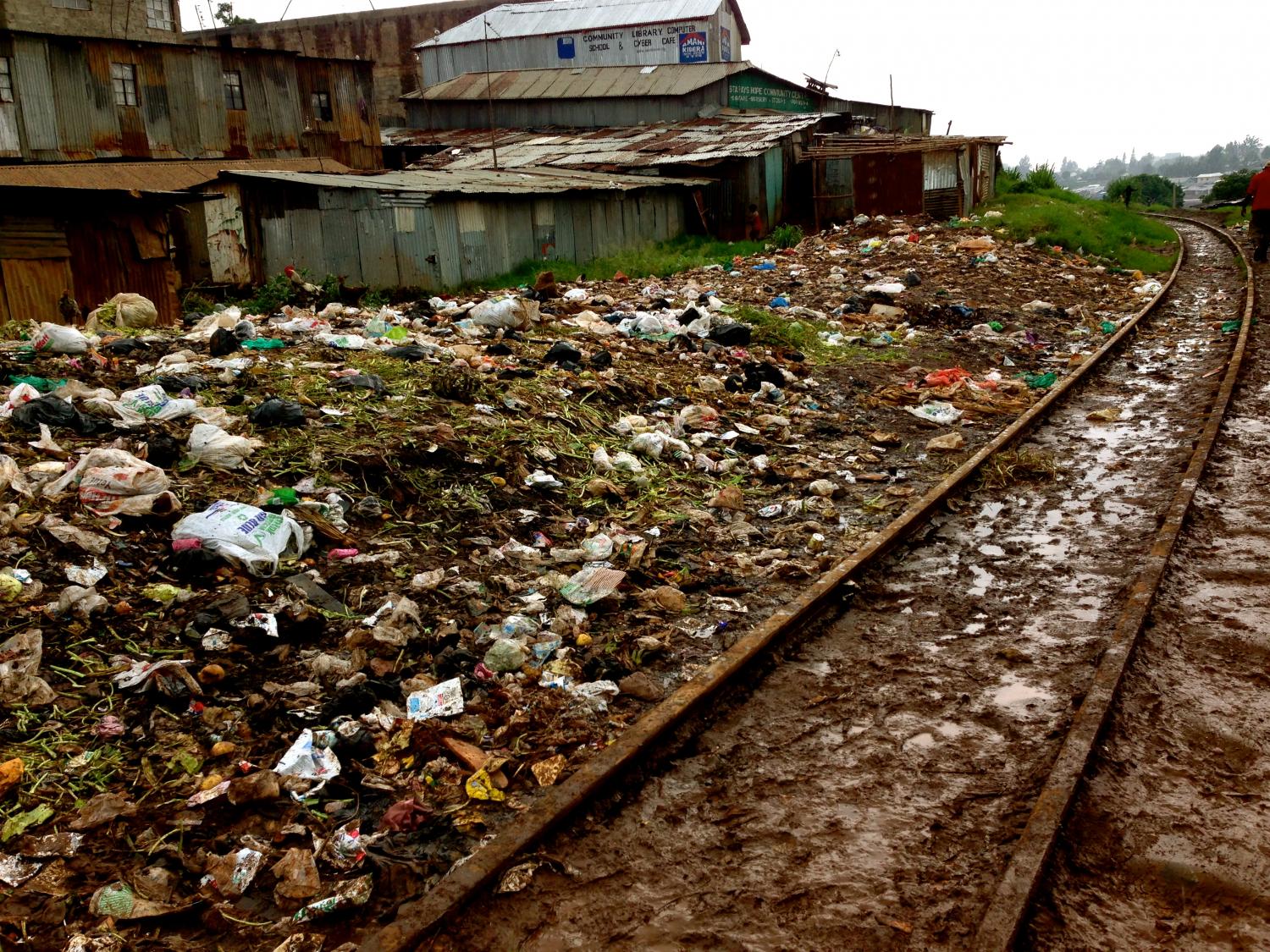From Trash to Triumph: Trustee Spotlight on Carolina for Kibera
December 11, 2013
Moses Ojwang grew up in Kibera and experienced firsthand the need to develop leadership and catalyze change among the slum’s youth. In 2008, he made improving his community a full-time career by joining Carolina for Kibera (CFK), an NGO partnered with the University of North Carolina, Chapel Hill, and Kiva Zip. CFK works to expand opportunity for all residents in Kibera, and more specifically, to help them become economically independent.
The organization offers three comprehensive categories of service to the community: (1) a free to low-cost health clinic and nutrition center for malnourished children, (2) social services including sports activities and a center for girls, and (3) the economic development and entrepreneurship program, comprised of a bone craft workshop, self help groups, and recycling center.
Moses’ work, however, focuses on a unique entrepreneurship training that is paired with a waste management program. Youth and women are gathered into groups-- 26 in total, each with a minimum of 10 members-- and given employment in collecting waste. They go house to house weekly, picking up trash and exchanging it for empty bags. The small fee they charge for the service-- Ksh 20 (23 cents)-- helps them develop money management skills as well as teach them how to share among the group. Some are able to start their own enterprises from the profits they receive from sorting the recyclables, using papers to make greeting cards or bones to make jewelry.
 Animal bones salvaged from waste are sanded down, shaped and painted to produce crafts that members sell to the public
Animal bones salvaged from waste are sanded down, shaped and painted to produce crafts that members sell to the public
Simultaneously, group members are educated in financial literacy, skill development, branding and packaging, and business expansion. CFK also hosts exhibitions where members can sell their products and stakeholders forums where they receive mentorship from successful entrepreneurs.
In 2014, CFK hopes to scale up the waste management program, which seeks to provide jobs while improving the environment, by creating more income-generating activities out of it and adding machines to the recycling center to process other types of materials. As the rainy season brings rivers of trash, the need for this work becomes even more apparent.
 Near the CFK office in Kibera
Near the CFK office in KiberaAll are welcome to join the waste management entrepreneurs every Friday for community clean-ups, from 8 a.m. to 11 a.m.
As they complete the two-week training, CFK entrepreneurs have all the skills needed to start their businesses except for seed capital. Though some have been lucky to receive government funds designated for youth and women’s development, Kiva Zip is a much more feasible resource and 32 borrowers have so far benefited from interest-free loans.
“Kiva has helped stabilize their businesses,” Moses attests. “They can now pay school fees and eat better food. We see active people now. We see a change.”
In an area bursting with potential but struggling to meet basic needs, Kibera is lucky to have organizations like CFK generating hope and sustainable solutions for its residents to climb out and stay out of poverty.
 Moses and I braving the rain to visit Kiva Zip borrowers and tour the CFK programs
Moses and I braving the rain to visit Kiva Zip borrowers and tour the CFK programs
PREVIOUS ARTICLE
Kiva Holiday Gift Guide →NEXT ARTICLE
Kiva Receives $3 Million Google Global Impact Award to Launch Kiva Labs →













